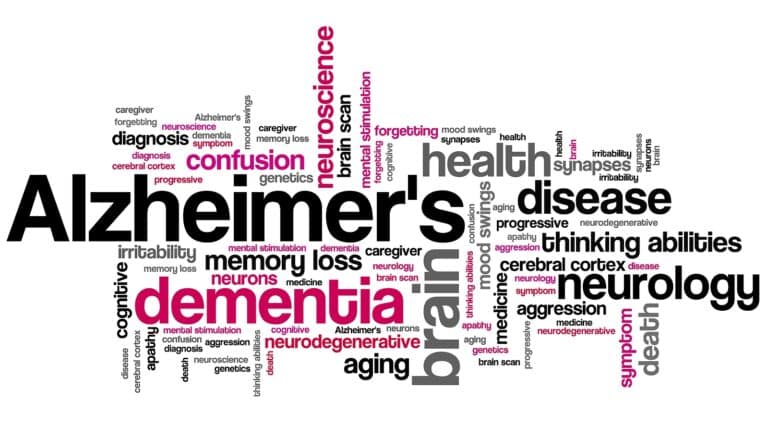There is no cure for Alzheimer’s. But Alzheimer’s can be slowed down. One of the reasons why it’s so important for seniors to get regular cognitive screenings is that detecting Alzheimer’s and starting treatment early can make a big difference in the quality of life that seniors experience. Seniors with Alzheimer’s should also start Alzheimer’s care as soon as they are diagnosed. Working with a caregiver experienced in Alzheimer’s care can help improve a senior’s quality of life and give them the specialized support they need while they adjust to living with Alzheimer’s.
Seniors with Alzheimer’s can also try these 10 things to hang onto their cognitive function longer:
Play Brain Games
Mental stimulation is crucial for brain health. Seniors can engage in activities that challenge their cognitive abilities, such as puzzles, crossword puzzles, Sudoku, reading, learning a new language, or playing memory-enhancing games. Staying mentally active can help preserve cognitive function. Playing music, singing, and listening to music are also fantastic activities for brain health.
Stay Physically Active
Regular physical activity has been linked to a reduced risk of Alzheimer’s disease. Seniors should aim for a combination of aerobic exercises (like walking or swimming), strength training, and flexibility exercises. Exercise helps improve blood flow to the brain, reduces inflammation, and promotes overall brain health.
Make A Healthy Diet A Priority
A diet rich in fruits, vegetables, whole grains, and lean proteins can support brain health. Omega-3 fatty acids, found in foods like fish, walnuts, and flaxseeds, are particularly beneficial for brain function. Seniors should also limit their intake of processed foods, sugars, and saturated fats. Eating healthy is just one of several lifestyle changes that can make a big difference in overall brain health for seniors.
Manage Chronic Conditions
Chronic conditions like diabetes, hypertension, and high cholesterol can increase the risk of cognitive decline. Seniors should work with their healthcare providers to manage and control these conditions through medication, diet, and lifestyle changes. The brain and body are intimately connected, so living a healthy lifestyle will boost brain health as well as physical health.
Focus On Good Quality Sleep
Quality sleep is essential for brain health and memory consolidation. During sleep is when the bring processes and sorts information. Seniors should aim for 7-9 hours of sleep per night and establish a regular sleep schedule. Addressing sleep disorders like sleep apnea is also important. Seniors can also take naps during the day to get enough sleep.
Stay Socially Active
Maintaining social connections is crucial for brain health. Seniors should seek opportunities to engage with friends, family, and their community. Joining clubs, participating in group activities, or volunteering can combat isolation and promote cognitive well-being. Companionship from an Alzheimer’s care provider can improve social engagement for seniors.
Keep Stress Low
High levels of chronic stress can contribute to cognitive decline. Seniors should adopt stress-reduction techniques such as meditation, deep breathing exercises, yoga, or mindfulness to manage stress effectively. It’s not possible to eliminate stress, but doing things that can reduce stress will help seniors stay healthy.
Stay Mentally Engaged
Continuing to learn and explore new interests can help seniors stay mentally engaged. Taking up new hobbies, enrolling in educational courses, or pursuing creative endeavors can provide stimulation for the brain.
Limit Alcohol and Quit Smoking
Excessive alcohol consumption and smoking are both risk factors for cognitive decline. Seniors should limit alcohol intake and consider quitting smoking to reduce their risk of Alzheimer’s disease.
Get Regular Checkups
Seniors should have regular checkups with their healthcare provider to monitor their overall health, including cognitive function. Early detection and intervention can be essential in managing Alzheimer’s disease.
If you or an aging loved one is considering Alzheimer’s care in Little Elm, TX, please contact the caring staff at Clear Path Home Care today. Call 817-928-5788.
Clear Path Home Care provides compassionate, high quality home care in Denton County, Montague County, Cooke County, Grayson County, Fannin County, Lamar County, Wise County, Collin County, Hunt County, Delta County, and Hopkins County in Texas.
- The Importance of Lighting for Seniors in their Homes - June 6, 2024
- Understanding the Importance of Meal Planning for Seniors - May 23, 2024
- Tips for Helping a Senior Parent Shower Safely - May 14, 2024






